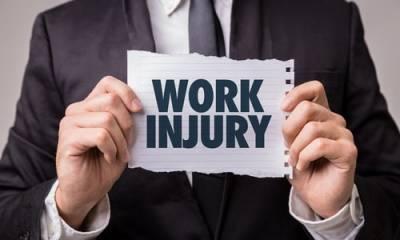Could My Workers’ Compensation Claim Be Denied Because of a Positive Drug Test?
 When an employee is injured on the job, workers’ compensation benefits can be a desperately needed source of financial support for serious injuries. But even under the best of circumstances, an employer’s insurance company will work hard to find a reason to deny a workers’ compensation claim.
When an employee is injured on the job, workers’ compensation benefits can be a desperately needed source of financial support for serious injuries. But even under the best of circumstances, an employer’s insurance company will work hard to find a reason to deny a workers’ compensation claim.
One common excuse insurance companies and employers use to deny workers’ compensation claims is that the employee was under the influence of drugs or alcohol and that the intoxication, rather than unsafe working conditions, led to the worker’s injuries. However, the California Labor Code provides that an employee can still qualify for workers’ compensation even if they failed a drug test–but only if they can prove that their drug or alcohol use was not the proximate cause of their injuries.
Who Has the Burden of Proof in Intoxication-Related Workers’ Compensation Denial?
Under California law, employers who wish to deny workers’ compensation claims based on intoxication are required to prove the employee’s intoxication was the proximate cause of their injuries or a significant factor in causing their injuries. The burden of proof is on the employee, not the injured employee.
State law allows employers to use the results of a breath, urine, or blood test to prove the employee had alcohol, marijuana, or another controlled substance in their system at the time of the accident. If an employee refuses to take a drug test after an accident, the law allows the employer to assume intoxication.
How Can I Prove Intoxication Was Not the Proximate Cause of My Work Injury?
Employees can gather and present evidence to prove that any substance found in their system was not the cause or a significant factor in their workplace injury. This could be done in many ways, including, but not limited to:
- Demonstrating that the employee’s blood alcohol concentration was lower than the legal intoxication limit of .08 percent.
- Calling into question the relevance of a drug test taken more than 48 hours after the workplace accident.
- Arguing that marijuana can remain in the human body well after any impairing effects have worn off.
- Questioning the legitimacy of the person who collected the urine, blood, or breath sample or questioning whether the sample was contaminated.
- Proving the injury was unavoidable, regardless of employee intoxication.
These and other factors can be difficult to prove, but an experienced workers’ compensation attorney can help gather supporting evidence, testimony, and expert witnesses.
Call a Santa Clara County Workers’ Compensation Lawyer
Accusations of intoxication can threaten a much-needed workers’ compensation claim and lead to further consequences such as job loss. If you are being accused of intoxication and denied the help you need, a Gilroy workers’ compensation attorney at Cramer + Martinez may be able to help. We will fight assertively to defend your rights and help you get any benefits to which you are entitled. Call us today at 408-848-1113 to schedule your free initial consultation.
Sources:
https://law.onecle.com/california/labor/5705.html
https://www.nationaldrugscreening.com/wp-content/uploads/2020/07/intoxication-defense-report-ca-75.pdf








